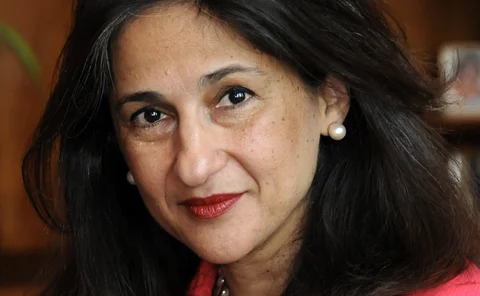Central Banks
Challenging crosscurrents from divergent monetary policy
Divergent monetary policies around the world and challenges linked to China’s economic rebalancing present central bankers with some opportunities as well as numerous threats
Christopher Pissarides on QE, the eurozone and economics
The Nobel economist tells Chris Jeffery why events in Europe have undermined neoclassical beliefs, QE is an optimal policy tool and Cyprus should not have joined the euro
The big data revolution and central banking
Central banks are increasingly turning their attention to the challenge of analysing very large datasets. But is ‘big data’ as revolutionary as some claim?
Improving banknote efficiency in India
The RBI manages nearly 80 billion banknotes in circulation – a number set to grow by more than 5% per annum. Vijay Shekhawat explains how the central bank is optimising its banknotes business
Harnessing network theory for more prudent bank supervision
Closer supervisory activities and data-sharing post-crisis offer the potential to harness network techniques to gain an improved understanding of financial risks
Post-conflict central banking
Building the integrity and operational soundness of central banks is a vital priority for post-conflict countries.
The Islamic liquidity facility conundrum
The rapid growth of Islamic finance could undermine both financial stability and monetary policy if central banks do not set up sharia-compliant facilities
Asia’s Basel III woes
New bank capital rules are bridling Association of Southeast Asian Nations banks with regulations tailored to European and American risk profiles, and may be contributing to a slowdown in growth
Cuba: coming in from the cold
The Central Bank of Cuba faces a number of challenges should the country press ahead with economic reform and reintegration in the global financial system
Book notes: Civic Capitalism, by Colin Hay and Anthony Payne
A book that espouses redesigning capitalism into 'civic capitalism'
Book notes: The challenge of economic rebalancing in Europe, perspectives for CESEE countries, edited by Ewald Nowotny et al
A useful book on the failure of the European economy to recover from the 2008 recession, and the slowing down of the convergence of central and eastern European economies with the core of the EU
Book notes: Banking Reform in Nigeria, by Yomi Makanjuola
A gripping read, starting with Sanusi Lamido Sanusi's leadership of the Central Bank of Nigeria in 2009
Open Forum: Market maker of last resort presents host of issues for central banks
Axel Weber and Minouche Shafik point to perils for central banks looking to step into the role of market maker during a liquidity crisis
More sharia-compliant instruments would aid liquidity management, IMF paper argues
Working paper focused on Gulf states notes a lack of instruments has forced Islamic banks to hold a lot of cash, while making it harder for central banks to conduct monetary operations
BoE’s FPC must be sharp on risks as next phase of credit cycle emerges, Cunliffe says
Cunliffe examines different approaches to setting macro-prudential policy, noting the BoE’s work towards countercyclical stress testing of banks
Low rates from QE poses risks to some pension and insurance firms in eurozone, Visco warns
Pension funds and insurance companies in some eurozone countries may need to adjust their practices to limit the risks arising from asset purchases, Italian governor says















